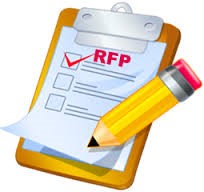 Many firms, both established and startups, spend a great deal of amount of time responding to RFPs for products and services put forth by Government organizations or agencies.
Many firms, both established and startups, spend a great deal of amount of time responding to RFPs for products and services put forth by Government organizations or agencies.
For larger companies with the bandwidth and knowledge of the RPF process, this can be a nice way and in some cases one of the key ways they drive new business. For smaller businesses and startups, the RFP process can take a considerable amount of time, effort and stress and in the end, despite the opportunity being large, simply not worth it.
This is not to say that a startup or a small company should not respond to a bid opportunity that fits nicely in its wheelhouse. Interestingly enough, I just completed an RFP for one of our clients, a small but growing firm, where the bidder was looking for exactly what our client offered. No jigging or tweaking of a solution required. No development work or R&D investment needed. Our client had the solution ready to go “off the shelf” and all we had to do was fill out the forms.
That process though took a better part of 1.5 to 2 days of time and probably a bit longer by the time you factor in other team members time, final proofing and then simply getting the documents ready to ship. I don’t know if we will win it, but it a solid fit that is for sure.
From a sales perspective, ideally you want to be ahead of the RFI or RFP process and if you can help drive it. In one example, an RFP was built on the solution a client of ours provides because we were in early and the client thought it was a great fit for their needs. Given the client’s size and nature of their business, for fair bidding purposes they still had to go to RFP, but obviously we were a great fit and won that business.
Questions to Keep in Mind for RFPs
Here are key questions to keep in mind on RFPs if you’re a small business.
- Do I have a product or solution ready today that can service the requirements of the RFP?
- Can I support the “win” without stretching my resources too far?
- Have I met with or spoken to the prospect?
- Am I able to influence the RFP process?
- What are the bidder’s opt out clauses? How great is the risk if the project or arrangement should terminate early?
- Do I have experience with this type of customer and this type of solution?
- Does it look like the RFP is intended for someone else?
- In the time it takes me to respond to this bid, what else could I have been doing with my time?
- How many other players could respond to this RFP?
- Is this RFP solely going to be decided based on price?
Good luck with your bidding process endeavours and should you require assistance with your efforts, please call, we would be happy to help.
For great insight into start up sales and marketing, sign up for our newsletter or follow us on Twitter at @vapartners.
